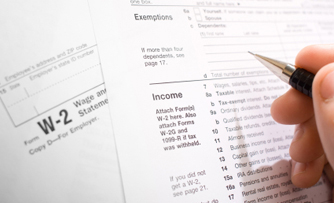Amended Returns: If and How

If you eagerly filed your 2013 income tax return but have more information or concerns now and need or want to amend it, determine whether to do so and how.
Must you file an amended return? If you failed to include income on your return (e.g., you received a Schedule K-1 after you filed your return from an entity in which you had an interest), amending your return as soon as possible will limit interest and, depending on the amount of the omission, any penalties. If the amount of income that wasn’t reported is not significant, instead of filing an amended return, you can wait until the IRS sends you a bill for the underpayment, plus interest when its computers have matched the omitted income from a Schedule K-1 or Form 1099 to your return.
Similarly, if you reported the wrong filing status, an incorrect number of dependents, or other “facts” that were not correct, these errors may result in your owing additional tax if the IRS detects the errors. The government may find the errors by matching Social Security numbers and by other computer-programmed matching of information. You may also owe interest and penalties. And if the IRS believes your errors were intentional, you may find yourself under audit. You can avoid penalties and perhaps an audit if you correct mistakes before the IRS sees them.
Should you file an amended return? If you failed to claim certain deductions or credits that result in a tax refund, you must file a return in order to obtain the refund; the IRS does not generate a refund automatically even though you’re entitled to it.
Also file an amended return if tax rules change for your benefit. For example, if you are a same-sex married couple who have a “marriage bonus” as a result of filing jointly but did not file as such in 2012, an amended return with joint filing status will produce a refund for you.
Be sure to file for the refund within the time limits set by law. This is usually 3 years from the due date of the return to which the refund relates.
Don’t file an amended return in some cases. The IRS says you shouldn’t file an amended return if:
- You made math errors. Its computers will find the mistakes and correct them.
- You failed to attach certain documents. If the IRS wants to see them, it will send you a letter asking for copies.
How to file an amended return. When amending an income tax return, file Form 1040X. This form is used whether you filed Form 1040EZ, 1040A, or 1040. It is filed on paper by snail mail, even if your original return was filed electronically. And, if owed a refund, you cannot have it direct deposited into your bank or other financial account; you’ll receive a refund check in the mail.
Attach to the amended return any supporting documents to show the basis for changes, such as a newly-received Schedule K-1.
Allow 8 to 12 weeks for the processing of an amended return.



